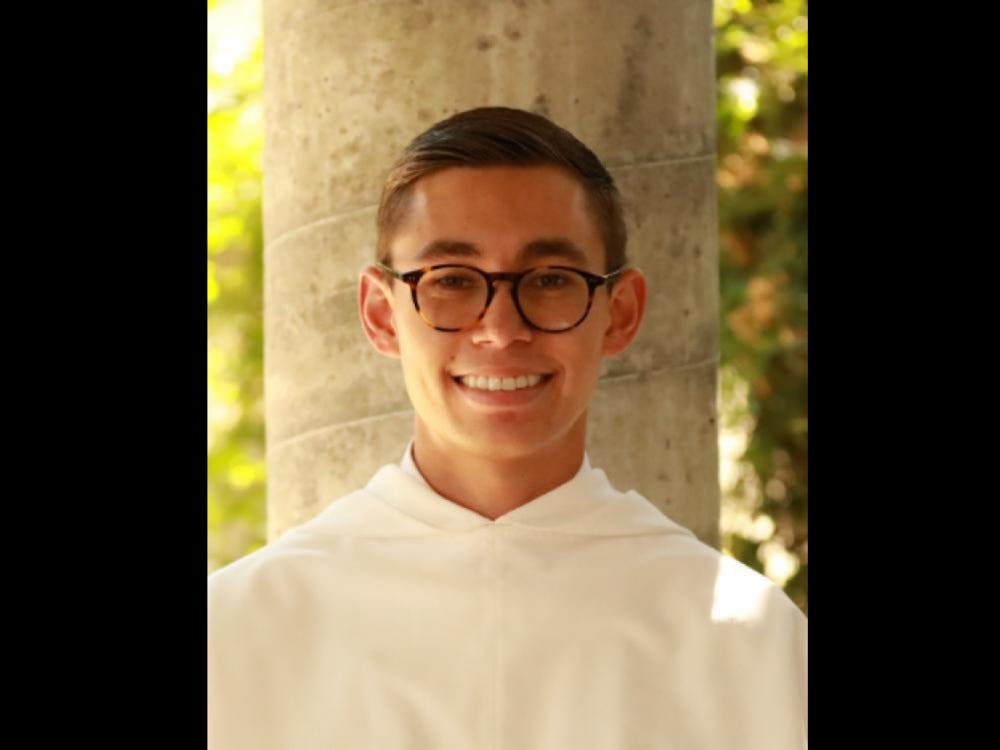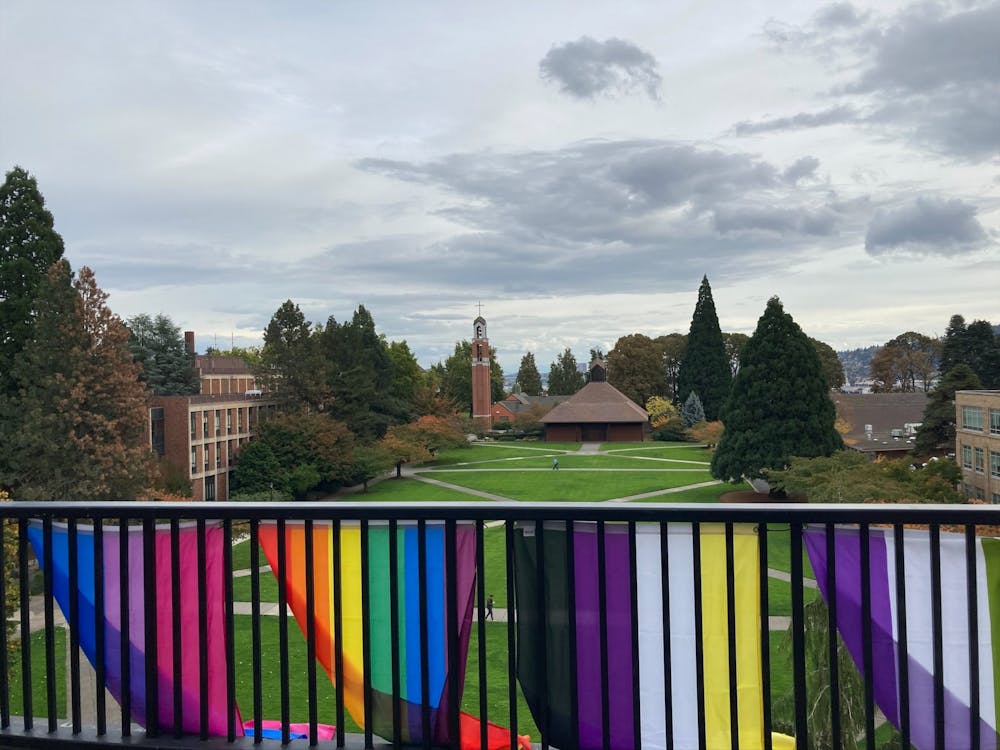As has been said many times before, Br. Benedict Bartsch’s opinion piece does not reflect my views on the relationship between the LGBTQ+ community and Catholicism.
Catholicism and the Bible, as has been discussed in many of my theology classes at this University, is up to interpretation. I truly believe, because of that interpretation, we have made some progress towards a practice of Catholicism that is more open, accepting and ready to acknowledge the reality of today’s society.
As an agnostic, that is more credit than I was willing to give a few years ago. While it is not perfect — and likely never will be — it is a far cry from the traditional Catholic beliefs of the past, because the progressive Catholicism I am referencing, in my eyes, is a completely different entity altogether.
But we cannot deny the truth of that past. As the line goes, those who do not learn from history are doomed to repeat it. Those who forget history, I argue, are prescribed the same fate. To ignore the fact that people still hold these views against same sex marriage and LGBTQ+ rights is a disservice to ourselves and all those who have faced discrimination because of beliefs like this.
If we cannot accept the existence of these views, and the fact that people still hold them, without being vulgar, hateful and uncivilized, then what does that say about us? How will we ever convince those who hold these beliefs that they are wrong, if all we can do is call them names in disgust?
Our job is not to condemn the ignorant — it is to guide them towards a better truth. If we can’t compose our argument in a respectful way, then it will never earn respect. Without calm, collected and well-devised efforts, they will never hear our calls for equity and inclusion.
To be clear, I don’t blame anyone for being outraged. That is your right, and whether you believe me or not, I share those feelings with you. Some of the most important people in my life are part of the LGBTQ+ community. I have very nearly lost friends to the discrimination supported by the traditional Catholic beliefs described in Barsch’s opinion. Many of you have suffered losses to that same discriminatory behavior, and my heart goes out to you.
But do not generalize the opinion of one man to an entire institution. Do not mistake his words as the words of an entire organization. He does not speak for the University of Portland, he does not reflect the majority of the people in our community, and he does not get to speak for the Catholic church in its entirety. He is one person, admittedly with a perspective that is likely shared by others. To paint his choice and his words as a reflection of the entire UP community is a mistake, and discredits the progress we have made.
I wanted to leave this University after my first year. But I stayed. I stayed because of the tireless effort put in by the people who want this place to change. I stayed because of the work students have done to fight for and support one another. I stayed because of the bravery of the staff, faculty and administration here who wanted to move DEI issues forward despite the odds they faced. The people on The Bluff showed me that they would not stand for the status quo.
That gave me hope that we could have these hard conversations, and advocate peacefully and respectfully for the basic human rights we are entitled to.
I have that hope still, even after all this time. Even after opinions like Bartsch’s. Because I know to address the problem, we need to understand where and how it originated, and whether or not people still hold that view in the first place. People on this campus deserve to know that the individuals that go here may hold the same views shared by Bartsch.
Having a fundamental understanding of Bartsch's argument gives us the tools we need to dismantle these exclusionary thoughts, and try and redirect these people to a more positive way of thinking.
“The truth will set us free.”
The truth cannot set us free if we can’t face it. We will never make change by ignoring the problem, or silencing it.
With that said, I refuse to believe change is made through hateful behavior — that goes for both sides of this discussion. Some of the comments made anonymously on the @uofpmemes Instagram page went as far as to wish physical harm onto Bartsch.
Under no circumstances do I support that behavior. Name calling, threats and wishes of harm cannot make progress. This kind of reaction only detracts from the legitimacy of the argument these individuals are trying to make.
Two wrongs do not make a right. If we plan to approach our problems as a war of attrition, fueled by resentment and hostility, then all we’ll be left with is exhaustion and defeat. All we will know is disappointment and discontent.
Progress is made through compassion. If we are going to believe that Christ’s teachings promoted love and respect for all, then we must make change with those tenets in mind. To cast them aside would render all that we are trying to accomplish shallow and incomplete.
The UP community I have gotten to know is kind, caring, open-minded and progressive. They are thoughtful, intelligent and patient. They know how to make change the right way. They know how to organize peacefully, respectfully and in a way that supports the rights of the people on this campus without reacting hatefully to the views of others.
If this community is not what I believed it to be, then I have wasted years of my life. We all have.
And to believe that would be to admit defeat. I will never give up on the people of this University. I will never give up on our journey forward into an inclusive future built on the foundations of kindness and respect. I will not yield to the idea that we must resort to hurtful words and name calling to address our problems.
I will also acknowledge that, without facing the views of our past and those who still hold them, we will never make the progress we want. To give up on those individuals is no better than giving up on the values we hold closest in our hearts. To resort to their level of disrespect only hurts us more.
Be the change you want to be, not the stagnant force which perpetuates the spiteful nature of the issues we are trying to resolve.
Austin De Dios is the Editor-in-Chief of The Beacon. He can be reached at dedios22@up.edu.
Have something to say about this? We’re dedicated to publishing a wide variety of viewpoints, and we’d like to hear from you. Voice your opinion in The Beacon.








